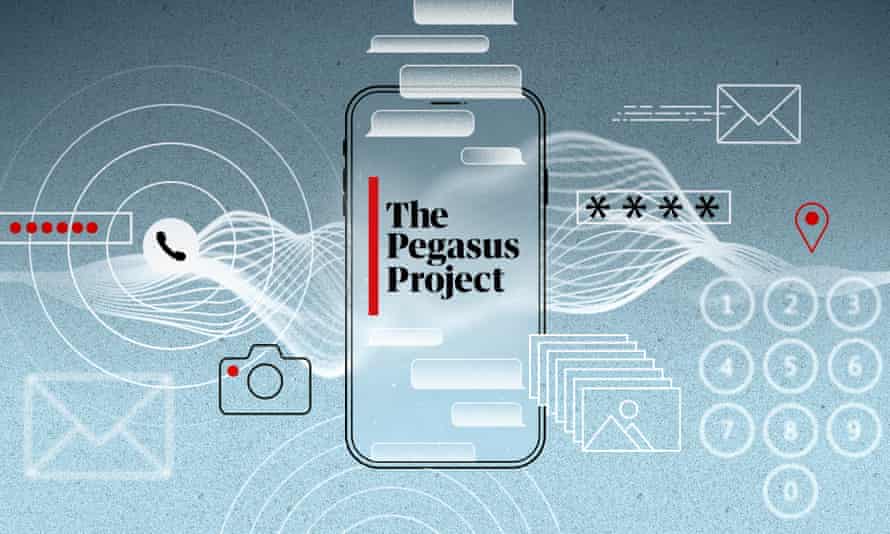The Guardian view on spyare sales: the proliferation risks are real
This week’s revelations around NSO’s Pegasus snooping software is an argument for an immediate moratorium on trade in the technology

The Israeli surveillance company NSO Group has created, developed and sold hacking software, known as Pegasus, that covertly allows access to mobile devices. Once it gains access, via hitherto unknown flaws in everyday apps, the code can extract messages, photos and emails, record calls and secretly activate microphones. Such is their ubiquity that mobile phones offer a window into our souls. What spyware, like that hawked by NSO, provides is access to our most intimate secrets.
One might have thought those peddling such intrusive powers would have imposed onerous responsibilities. NSO says that it only sells its software to vetted government clients to prevent “terrorism and serious crime”. Unfortunately, that does not appear to have been the case. And it’s not just NSO. Instead, an unregulated global industry has grown up in the shadows to provide cheap spying tools that were once the preserve of the most advanced state intelligence services.
NSO says that as it does not operate the spyware systems it sells, and does not have access to the data of its customers’ targets, the company cannot supervise their use. This is a self-serving argument that persists because of corporate secrecy. It is also contradicted by the work of a reporting consortium, which included the Guardian, Amnesty and the Paris-based non-profit Freedom Stories, on a large data leak. It revealed this week that journalists, human rights activists and opposition politicians are being targeted by authoritarian regimes and rightwing populist governments.
Is political dissent now a form of terror? Are activists’ thoughts crimes? For some regimes the answer is, unfortunately, yes. A murdered journalist’s number was selected by a Mexican NSO client. The company’s spyware was used to try to monitor people close to the journalist Jamal Khashoggi both before and after he was murdered, according to the CIA, by the Saudi government in October 2018. In India, the phone numbers of hundreds of opponents of the Hindu nationalist Modi government, including a senior Congress party leader, Rahul Gandhi, are in the leaked data. Mr Gandhi called it “an attack on the democratic foundations of our country”. He’s right.
In the light of such revelations, the notion of mobile phone privacy seems a quaint one. The sheer scope of the dataset points to a slew of significant breaches of privacy rights meant to be protected under international law. This is not some esoteric debate. A society lacking the virtues of democracy, such as freedom of speech and association, risks a descent into tyranny. In George Orwell’s Nineteen Eighty-Four, the surveillance state of Oceania operated in plain sight since its acquisition of total power had done away with any need for subterfuge.
Edward Snowden, the former NSA contractor turned whistleblower, described NSO as “infectioneers” selling “ways to cause a kind of disease for devices. They find weaknesses, unvaccinated points of entry.” NSO’s defence is that its spyware is already subject to Israeli export controls and the company’s processes. This is a bad argument that promotes a failed model of industry oversight.
In 2019, David Kaye, the former UN special rapporteur on freedom of expression, called in the Guardian for an immediate moratorium on the transfer of spyware until viable international controls were in place. He said that there should be government sanctions for hi-tech companies that traded with persistent human rights offenders. Prof Kaye advocated a legal framework so that “victims of spyware could hold governments, or the complicit companies, accountable for abuse and misuse”. These are all sensible steps to take. What would not be prudent is to persevere with light-touch regulation that is ineffective at preventing violations of human rights by repressive regimes or at protecting individuals or companies from unlawful hacking.
FOR MORE SEE The Pegasus project | The Guardian
No comments:
Post a Comment